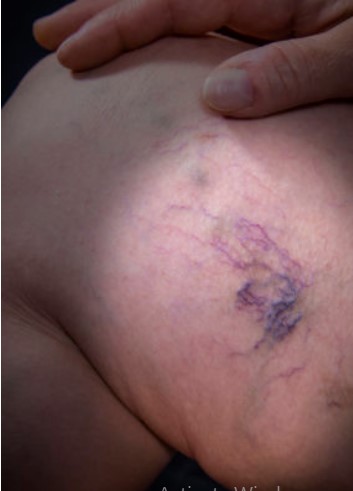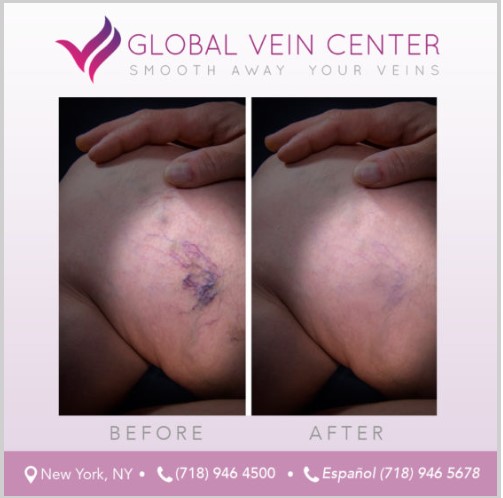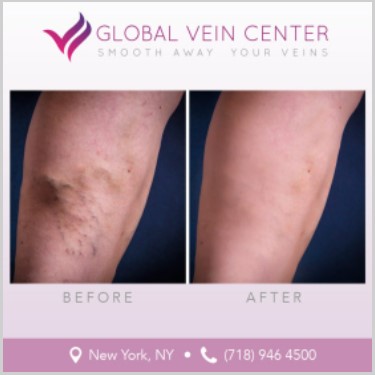Spider Veins

Spider Veins
Spider veins are clusters of thinning blood vessels that take the shape of a spiderweb – hence their name – and develop under the skin just beneath the surface. While they mainly form in the legs, they can appear anywhere else in the body.
Spider veins are common in women, particularly among those with a family history, as well as those experiencing hormonal changes affiliated with pregnancy and age. While spider veins do not pose a significant health hazard, many opt to treat them because they can be cosmetically unappealing – they are often red, blue or purple in color and can sometimes cause cramps, itching or a burning sensation.
TREATMENT
There are three basic, effective methods to get rid of unsightly spider veins. All are performed in a medical office setting:
Skin Laser:
A pencil-like instrument that burns and terminates the veins. This treatment is best for very small spider veins.
Sclerotherapy:
An injection through a very thin needle that causes the spider veins to collapse and triggers the body to gradually break them down. This method is best to target a more extensive spread of spider veins.
Microphlebectomy:
Larger spider veins can be pulled out by creating a tiny hole in the skin. The holes are incredibly small and do not require stitches.
Treatment is tailored to each individual patient. To achieve the best outcome, several sessions may be recommended depending on the extent of the person’s spider veins.
While there is no pain associated with these procedures, a topical anaesthesia may be used to minimise any discomfort. Following any of the procedures, there are no restrictions of activity and patients can and are encouraged to return to full and normal activity.


Side Effects
At our office we use Asclera, a polidocanol injection, or a sclerosing agent, to treat spider veins. This solution its both safe and effective. The most common side effect from treatment is temporary bruising at the site of the injection. To minimise the extent of bruising, we recommend stopping natural herbal medication, non-steroidal anti-inflammatory drugs (NSAID) or any other blood thinners for a week prior to treatment. Please consult your primary care physician before stopping any of the aforementioned medications.
